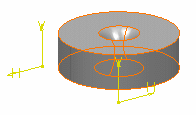Creating Grooves | |||||
|
| ||||
The Groove Definition dialog box appears.
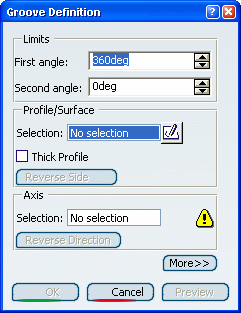
Select the profile you wish to extrude.
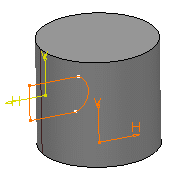
The application previews a groove entirely revolving about the axis.
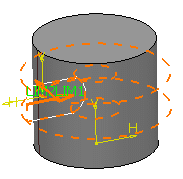
The application displays the name of the selected sketch in the Selection box from the Profile frame and previews the limits LIM1 and LIM2 of the groove to be created. You can select these limits and drag them onto the desired value or enter angle values in the appropriate box. For our scenario, select LIM1 and drag it onto 100, then enter 60 in the Second angle box.
Optional: Click Preview to see the result.
Just a portion of material is removed now.
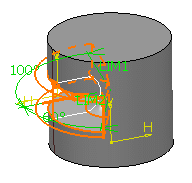
The Selection box in the Axis frame is reserved for the axes you explicitly select. You can select axes from the geometry area, not from the specification tree. For the purpose of our scenario, the profile and the axis belong to the same sketch. Consequently, you do not have to select the axis. Click the Reverse Direction button to inverse the revolution direction, or use the Reverse direction contextual command available from the arrow. As an alternative, click the arrow to obtain the direction as shown:
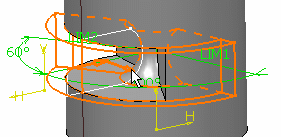
Click OK to confirm the operation. The application removes material around the cylinder. The specification tree indicates the groove has been created. This is your groove:
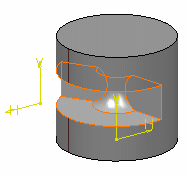
Double-click the groove to edit it. Now, you are going to remove the material surrounding the profile.
Click the Reverse Side button or alternatively click the arrow in the geometry. Reverse Side lets you choose between creating material between the axis and the profile, which is the default direction, or between the profile and existing material. You can apply this option to open or closed profiles.
Enter 360 as the first angle value and 0 as the second angle value.
The application previews the new groove.
Click OK to confirm.
The material surrounding the profile has been removed.
